My 5-year-old daughter woke up and cried to me this morning. She did not want to go to school because a girl continuously sang to her, “Minghe is a baby; she needs to pee~~.” My mind was flashing while she is crying. Was she bullied? Is it just lousy teasing? Shall I interfere or let her handle herself? Is this part of growing? What shall I tell her? How can I help her to prevent such situation? Do young kids even realize they are bullying others or being bullied?
In this article we’re going to discuss how to prevent our kids from bullying. Start from what bullying is, the difference between bully and teasing, the long-term effects of bullying and how we as parents help our kids to deal with bullying?
Every Parents’ biggest fear is that their kids get bullied. One out of every five (20.2%) students report being bullied and only 36% of bullying victims report it, which is likely significantly higher.
Related topic:
- 8 Best Positive and Gentle Parenting Books for Toddlers’ Parents
- The Difference between Bribe and Reward your Kids
- Room Parent Feedback – Parents Involvement in Primary School
- 10 Signs of Toxic Parenting and How to Deal with It
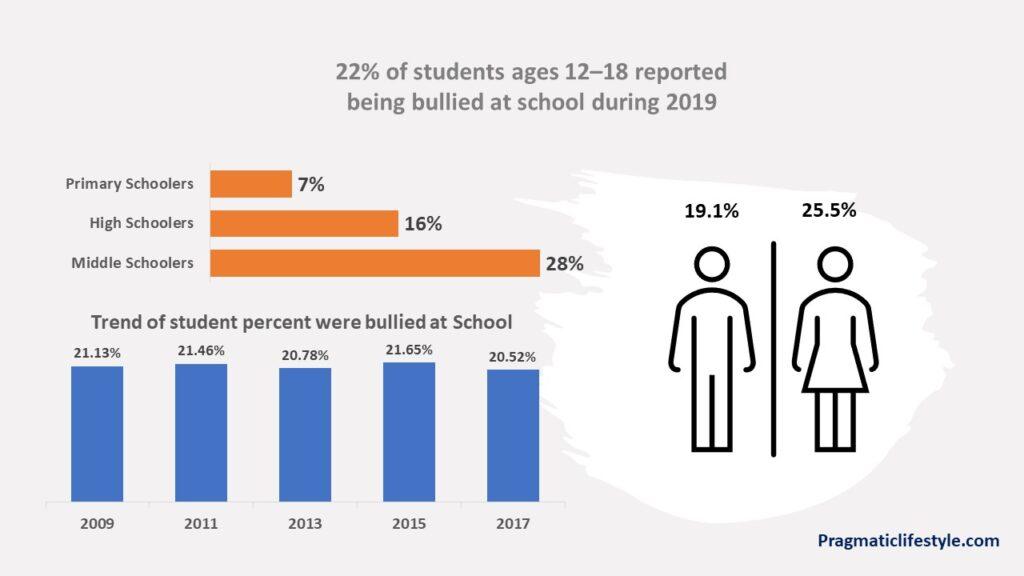
Table of Contents
What is bullying?
Bullying is a power game. Repeated behavior intends to cause pain from the strong power side to the weak power side. When kids are young, children who bully usually come from a higher physical power, bigger or stronger or more popular. When kids are getting older, the power can vary to social power, communication power, or others.
There is a thin line between teasing and bullying, while the content turns hostile and does not stop after the victim is upset or asks to “stop.”
There are four main types of bullying: physical, verbal, social, and cyber. Also, racist bullying, sexual bullying, color, and LGBT bullying are rising.
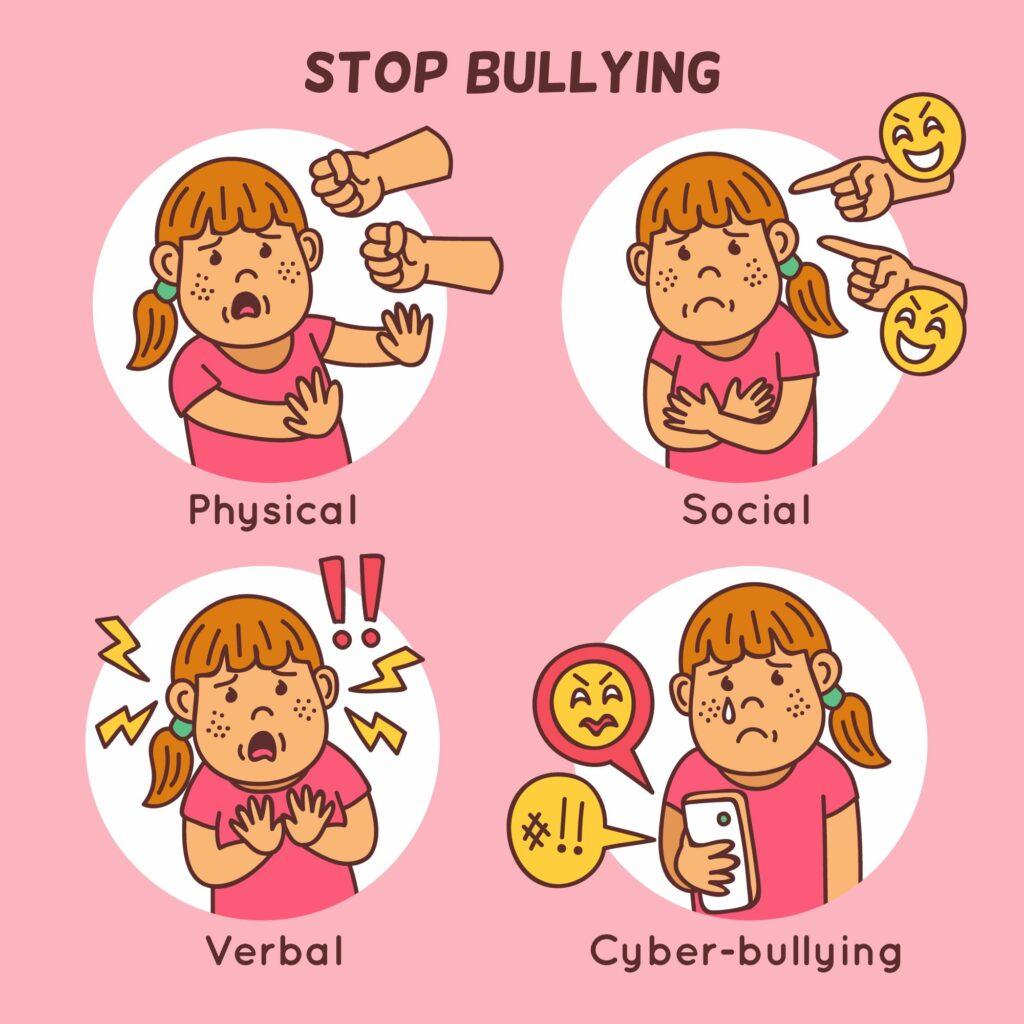
Physical bullying
Occurs when someone hurts you or your possessions on purpose. This could include hitting, kicking, punching, spitting, tripping, pushing, or taking your things without permission. Physical bullying is the easiest to spot, and it involves using physical power or threats of violence to coerce or control others. If you find unexplained injuries like bruises or cuts on your child, if they come home with ripped or damaged clothing, or if they stay covered up around you, there is a good chance someone is physically bullying them.
Verbal bullying
happens when someone says mean things to you or about you. Name-calling, insults, and threats are all examples of verbal bullying. Verbal bullying is much more challenging to identify because it is not a physical action; there is no evidence left behind except for the emotional strain it can put on the child being bullied. When victims speak up, it tends to start a he-said-she-said conversation that doesn’t usually result in consequences due to lack of evidence.
Social bullying
is when someone tries to damage your reputation or relationship by spreading rumors, causing humiliation, playing jokes meant to embarrass the victim, or convincing others to exclude them from certain groups or activities. Social bullying is the one that has the most effect on a child’s reputation, shaping their experience while they’re at school or at events with their peers. The bully tends to use social bullying to simultaneously put their victim down and bring him or herself up. One way to recognize students that are being victimized is to watch for changes in mood or social interaction. Children that are usually social but have started to avoid social scenes, especially peer-related events, and would rather spend time alone are likely to be bullied.
Cyberbullying
is when someone uses the Internet to bully you by sending mean texts or emails, posting hurtful things about you on social media, hacking into your accounts, etc. Cyberbullying is dangerous because it can combine many other types of bullying: verbal, emotional, and social, without parents ever finding out about it. This is an issue that will continue to grow as children spend more and more time on computers and mobile devices. While most forms of bullying end when the school day does, cyberbullying follows children into their homes, making it a 24/7 possibility that your child can’t escape. Additionally, the Internet offers a level of anonymity that is not an option in person. Children can be bullied daily without ever knowing who their tormentor is.
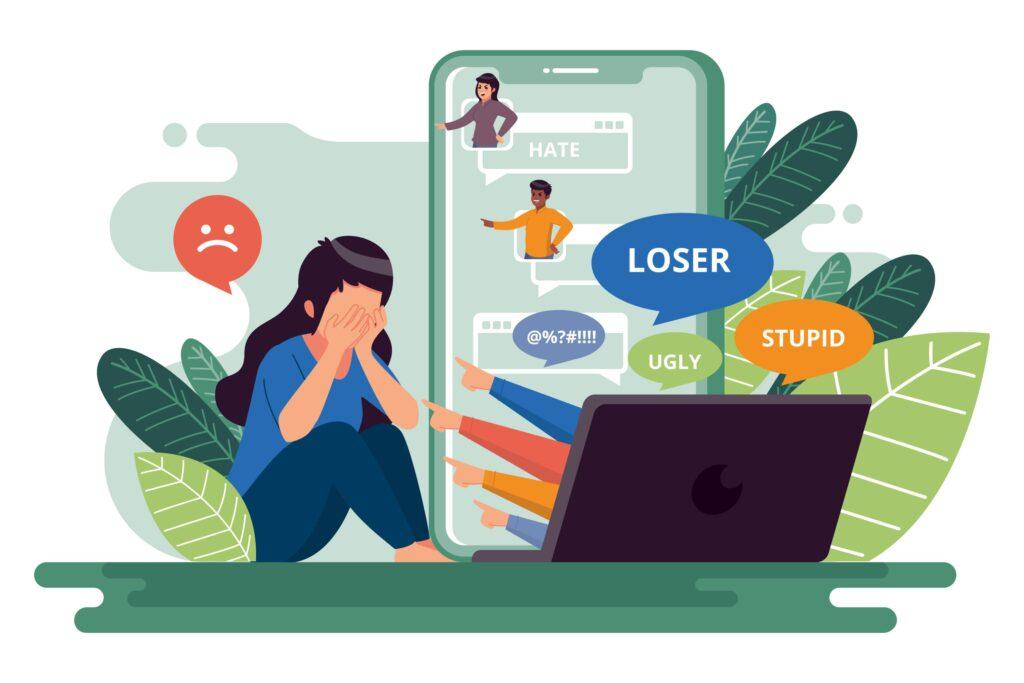
The effects of bullying
Bullying can make kids feel scared, alone, helpless, and lose interest in school and activities they used to enjoy. They may also experience physical symptoms, like headaches and stomachaches. Even worse, they begin to think about suicide. Bullied students are twice as likely to consider suicide than non-bullied students.
The terrible feeling can also carry into adulthood. As children, people who were bullied are more likely to experience anxiety, depression, and sleep problems. Moreover, have lower self-esteem and fewer friends.
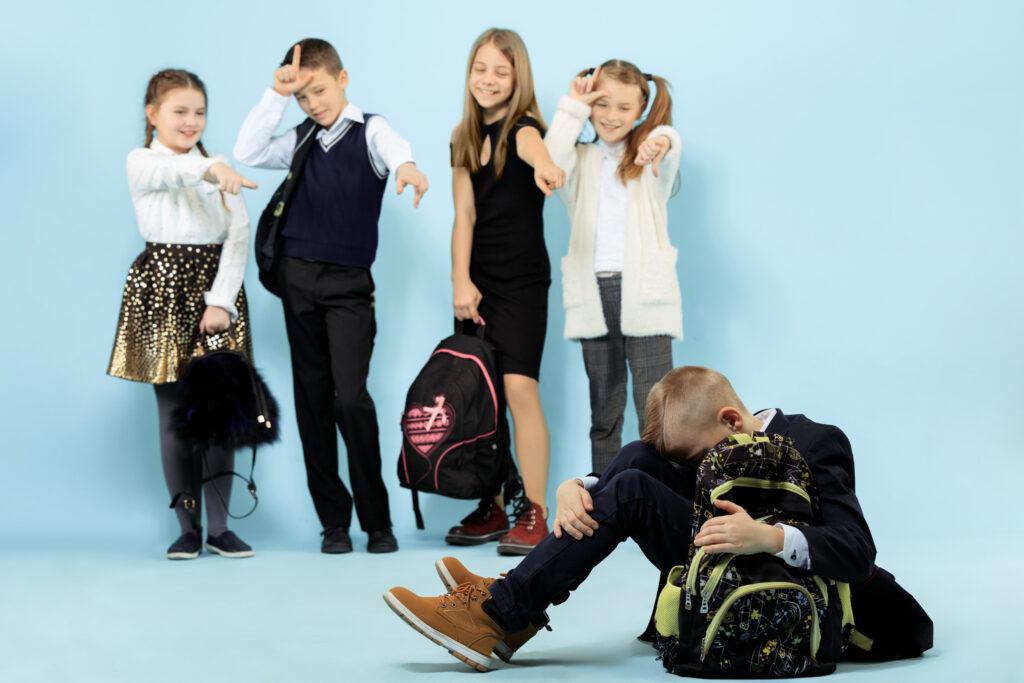
Why do kids bully others?
The top two reasons for a child bullying others are: First, they seek attention from others while being neglected and cannot communicate well. Secondly, they have been bullied and are more likely to force a younger child into feeling more secure or empowering themselves. In other words, they do not know how to express their frustration and anger and lack empathy.
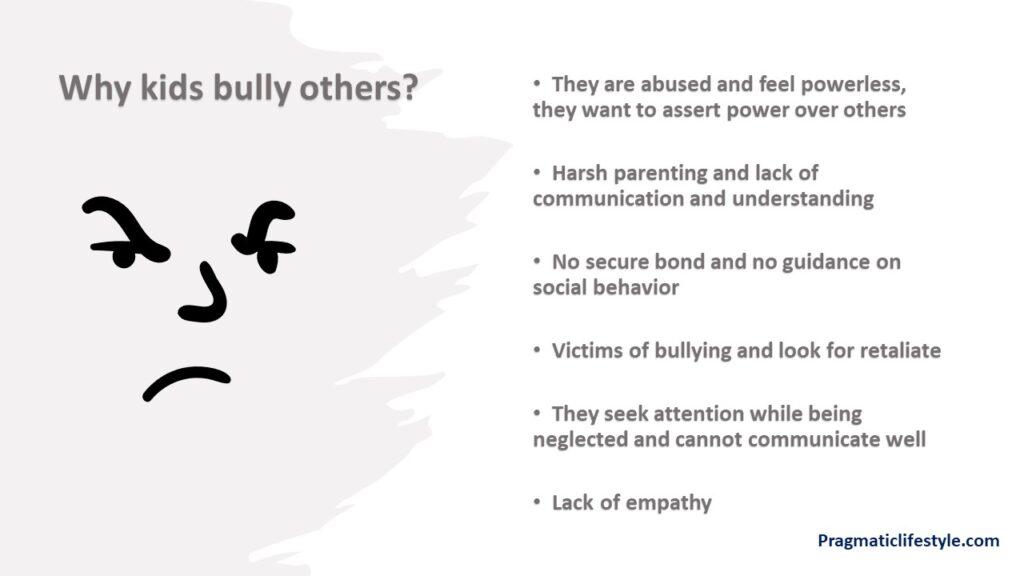
How do parents help kids to prevent bullying? It is all about creating a safe environment, giving unconditional trust, and building up confidence
Most media and research focus on bullying among pre-teenagers or teenagers. Not because there is less bullying at a young age, but because measuring bullying among young children is difficult. There is less physical bullying, and kids have difficulty expressing themselves and describe the situation. According to a Study of Violence, Abuse, and Crime Exposure, 20.4% of children aged 2 to 5 had experienced physical bullying, and 14.6% had been teased (verbally bullied).
The top advice from a bullying specialist is always “talk to someone you trust.” Someone who understands the kids and can help. It can be a schoolteacher or other authority. However, for young kids, it is primarily the parents. For elder kids, parents may not be able to help on the spot, but you can at least understand the kids and help to create a safe family environment.
Here are the 9 ways to prevent your kids from being bullied.
1. Be a Happy Family
The most effective way to keep children from being bullied and even from becoming bullies is to raise them in loving, respectful homes where their freedom, privacy, and independence are valued. Young Children are a mirror of their parents, and if parents intend to use physical or verbal power to control their children, then the children will think that is the way to handle interpersonal problems. Try to create a happy and safe environment for kids.

2. Choose School with Right Culture
Most preschools have zero bullying policy and procedures for managing it. However, there is only 14% bullying is interfered by teacher in the classroom. Why? Imaging that you have 20 kids at the same age, you need to discipline the normal behavior and also teach the school curriculum at the same time. I am sure you are overwhelmed in the end of the day.
However, school and teacher do have a more important role to prevent bullying: they are responsible for setting up a open and equal culture in school. How do you know the result? Visiting school! Before we sign up for school, there is often an open day. You can use the opportunity to talk with elder kids in school how their opinion on bullying. If the students are not reflecting the value of equality and empathy, then it is a warning sign.

3. Establish Family Chatting Time and Pre-discuss Bullying
Have a family chatting time with your kids as a daily routine, for example, 15 min after dinner. You can take turns sharing what has happened on the day, so they are naturally open to any topics with you. During the conversation, remember the followings:
- Listen carefully. Give your child your full attention and ask them simple questions such as ‘what happened next?’ and ‘What did you do then?’
- Be with your kids. Tell him you are always there to help and acknowledge their feeling. Never blame your kids by saying, “why don’t you stand up for yourself?” Or “now you are home, it is OK.”
- Praise your kids by telling them that sharing is not easy, but you are glad for the trust.
- Think of a solution together with your kids

4. Fact sheets to bring confidence
Confident kids do not get bullied easily. If you believe in yourself, it will be harder for the bully to bring you down. One tip you can do with your kids is to build ‘fact sheets’ and ask them to draw a picture of themselves. Fill in the question list such as “what I am good at,” “things I like to do,” “who I want to be together with,” and “I am happy because of.” Put a big smile on the fact sheets and stick it on the wall.

5. Involve in the School activity
I know every parent is busy, but try at least once per semester to help at school. Trust me, through school activities. You immediately will see how kids live and who are their best friends. Nevertheless, your kids will be very proud that their mama is with them! By helping in school, you also showed the teachers that you are paying attention to your kids.
Related topic:

6. Arrange a Playdate and observe kids’ basic social skills.
We encourage our kids to make true friends, and a friendship always starts with spending time together one-on-one. Meanwhile, you can also observe how kids interact with each other and which character your kids match the most. Moreover, if there are any improvement points for you kids social skills.
7. Sign up for Team Sports
Playing a sport requires discipline, patience, and the ability to balance time and energy. Depending on your family’s situation, signing up for one team sports (basketball, football, hockey, etc.) provides kids the opportunities to succeed by increasing their physical and mental strength, developing social skills, and taking care of the team.
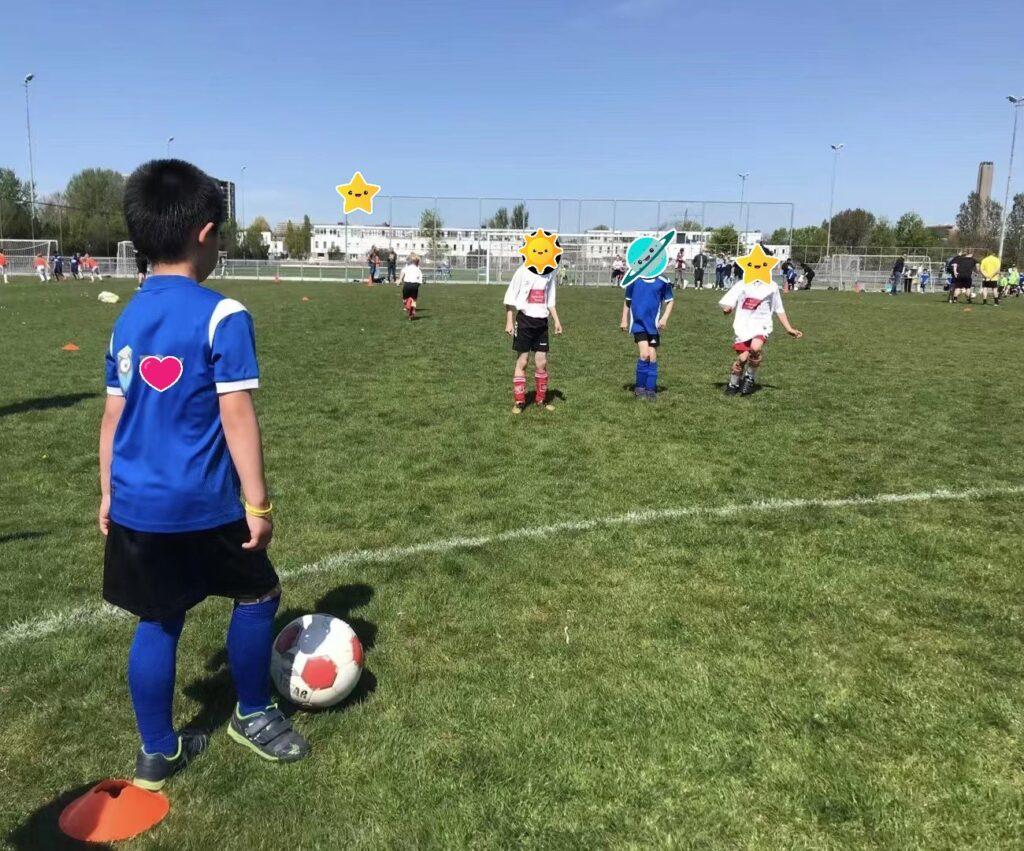
8. Role Play Bullying Scenarios
Successfully confronting bullying is a skill just like any other. Kids can learn it with practice. Role-play different scenarios with your child so that they can practice their responses. Point out to your child that the bully is looking for a reply that makes them feel powerful. Fighting back or reacting emotionally makes it worse. Explain to your child that they can’t control the bully but can manage their reaction and choose between reactions that inflame or defuse the situation.

9. Teach Your Child To Be Assertive
Bullies prey on easy victims. The more bullies think they can pick on a victim without being confronted, the more they will do it. It’s why being assertive is such an effective counter-bullying tactic. The goal is to teach children how to master proactive communication without resorting to aggressive comebacks that might increase the tension or a passive response that will lead to further abuse. Some examples are:
“It’s my turn now.” “Hey, stop that.” “Hands off my body.” “It’s not OK to hurt.”
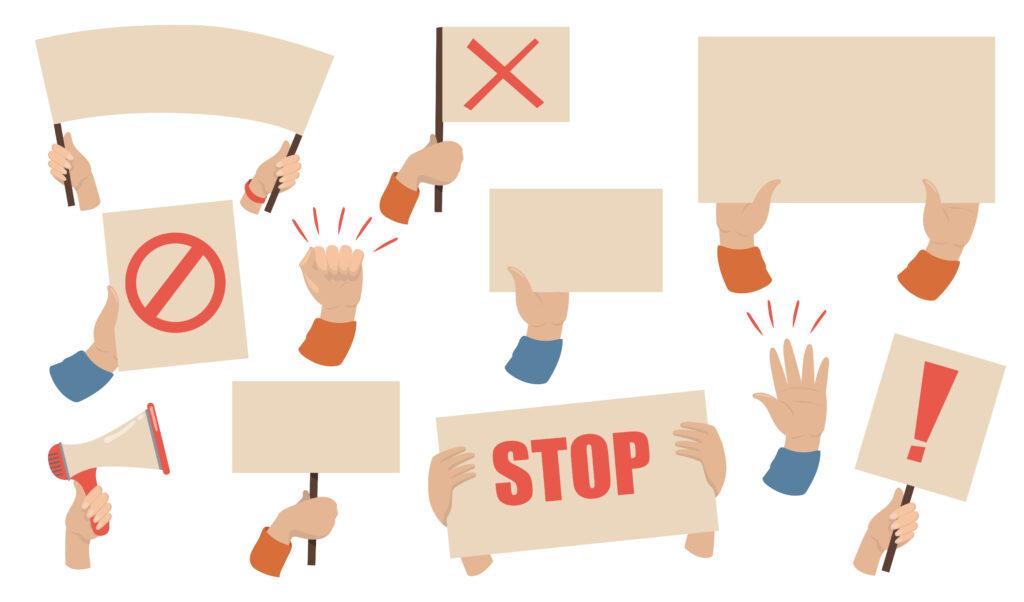
Final Thoughts from Pragmatic Lifestyle
In the end of the day, when my daughter was back from school, I ask again, how is her day? She laughed and told me, “I had a fun day with my friends!” “this girl?” “she is not my friend, but she does not singing anymore, it is OK”. “Fantastic, did you do any magic?” “She has a nice dress, I told her she looks cute today! Then she smiles to me”
Bully could happened to anyone, instead of let it happen and then fix it, let’s creating our kids a safe environment, giving unconditional trust, and building up confidence at home, at school and in the society for preventing bullying. Do not heisted about it!
About Me
Hi, there. I am Lin. Together with my husband and two kids, we live in the beautiful Netherlands in Europe. I am dedicated to self-development, creating quality time for the whole family, and fully supporting kids with their potentials and possibilities with all I have learned from engineering, MBA, and 10+ years of working experience in the energy sector.


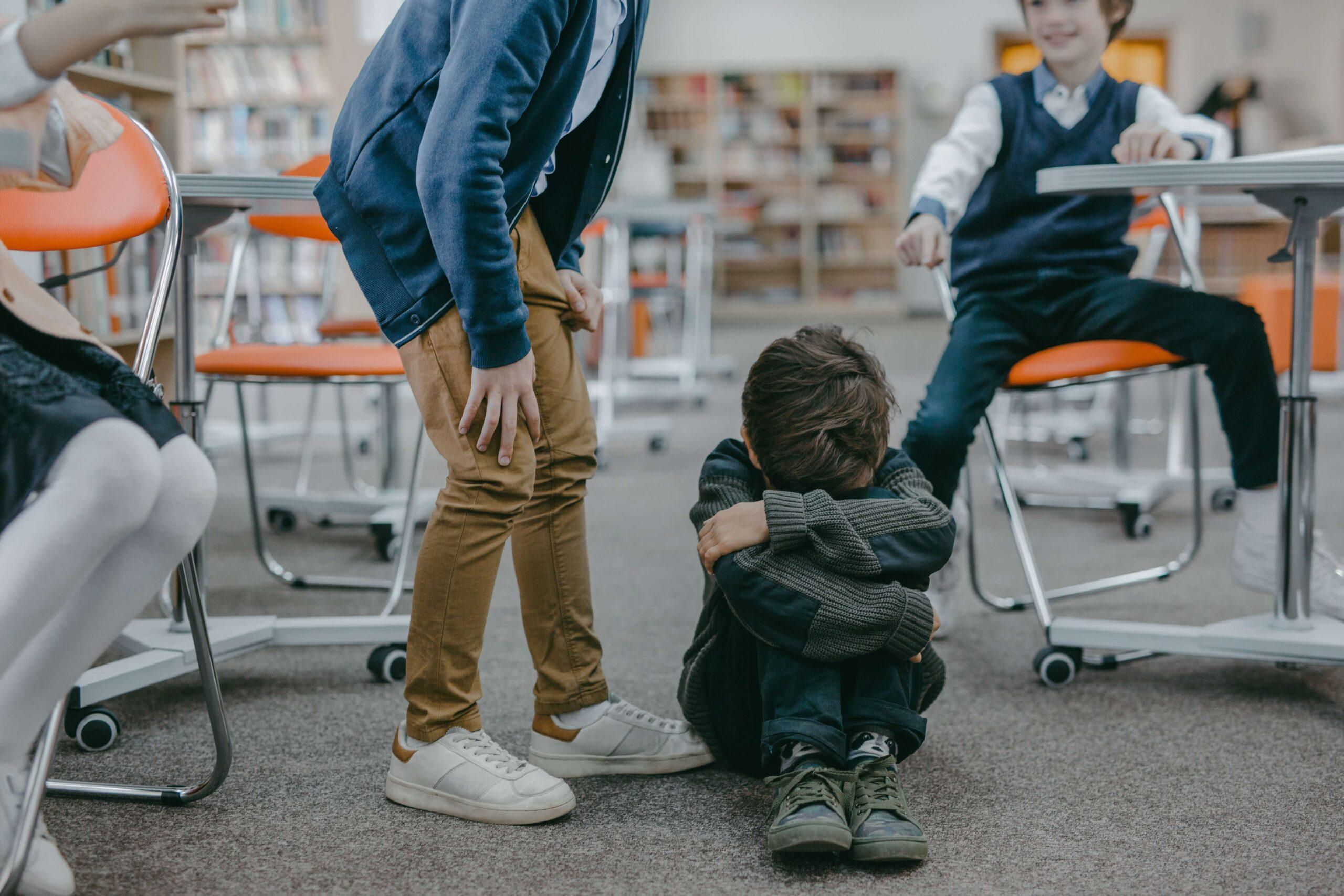
8 Comments
Comments are closed.